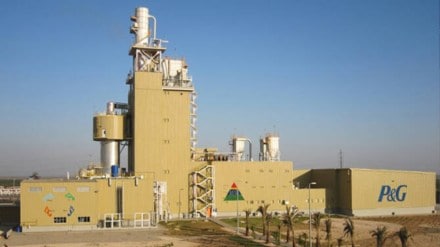Procter & Gamble (P&G) has said that it will stop its direct manufacturing and business operations in Pakistan, including its Gillette Pakistan subsidiary. Instead, the company will use local distributors and regional operations to supply its products, so P&G items will still be available in the country. Meaning it will still continue to serve the Pakistani market through third-party distribution.
Gillette Pakistan’s revenue nearly halved
This move is part of P&G’s global plan to restructure and focus on growth. Considering the big exit, thousands of people fear losing their jobs. This year in June, P&G had said that it would reduce its brand portfolio and cut up to 7,000 jobs over two years as part of a company-wide restructuring.
The move makes P&G the latest multinational to scale back in Pakistan amid broader economic and business challenges, including restrictions on profit transfers and weak demand, as per Bloomberg. In fact, Gillette Pakistan’s revenue nearly halved in the fiscal year ending June 2025, after reaching a record three billion rupees two years earlier, the report added.
List of companies that have exited Pakistan
In recent years, several multinational companies have exited Pakistan, by either selling stakes or operations, even though it is the world’s fifth-most populous country. Last year, P&G sold its soap manufacturing plant in Pakistan to Nimir Industrial Chemical Ltd.
Microsoft: Microsoft shut down its operations in Pakistan this July after 25 years. Its founding country head, Jawwad Rehman, who launched Microsoft in Pakistan in 2000, shared the news on LinkedIn, saying that the last employees were formally informed and that it marked the end of an era. The company itself has not made any official public announcement about the closure.
The move came at the same time Microsoft announced global layoffs of 9,000 employees. But in Pakistan, many viewed the shutdown as a sign of deeper economic and political troubles. A falling currency, strict import barriers on technology, and constant political uncertainty have made it difficult for multinational firms to operate smoothly in the country.
Pfizer: Pfizer ended its manufacturing operations in Pakistan in May 2024 by selling its Karachi plant (B2 SITE) to Lucky Core Industries Limited (formerly ICI Pakistan Limited). Lucky Core’s board approved the deal on May 10, 2024. The sale included assets, a trademark license, and related agreements. With this, Pfizer shut down local production in Pakistan but still maintains a small presence by selling imported products.
Shell: Shell announced its exit from Pakistan in June 2023, and by November 2023 it completed the process by selling its entire stake in Shell Pakistan Limited (SPL) to Saudi company Wafi Energy. Reports have suggested that Shell had been trying to exit the Pakistani market for almost 8 to 10 years before making the announcement.
TotalEnergies: TotalEnergies left Pakistan in 2024 by selling its 50% share in Total PARCO Pakistan Limited, a joint venture with Pak-Arab Refinery Limited (PARCO). The buyer was Gunvor Group, an energy trading company based in Singapore. The deal was both announced and completed in 2024, though exact dates were not clearly mentioned in available reports.
Telenor: Telenor announced its exit from Pakistan in November 2022 after a failed merger attempt. The company signed an agreement on December 14, 2023, to sell all of Telenor Pakistan to Pakistan Telecommunication Company Limited for reportedly about US$385–493 million.
The deal reportedly ran into delays as it needed clearance from regulators, including the Competition Commission of Pakistan (CCP) and the Pakistan Telecommunication Authority (PTA). The CCP, reports suggest, has approved the sale, but other approvals are still pending. The transaction is now expected to be completed in the second half of 2025, and until then, Telenor will continue its operations in Pakistan.
